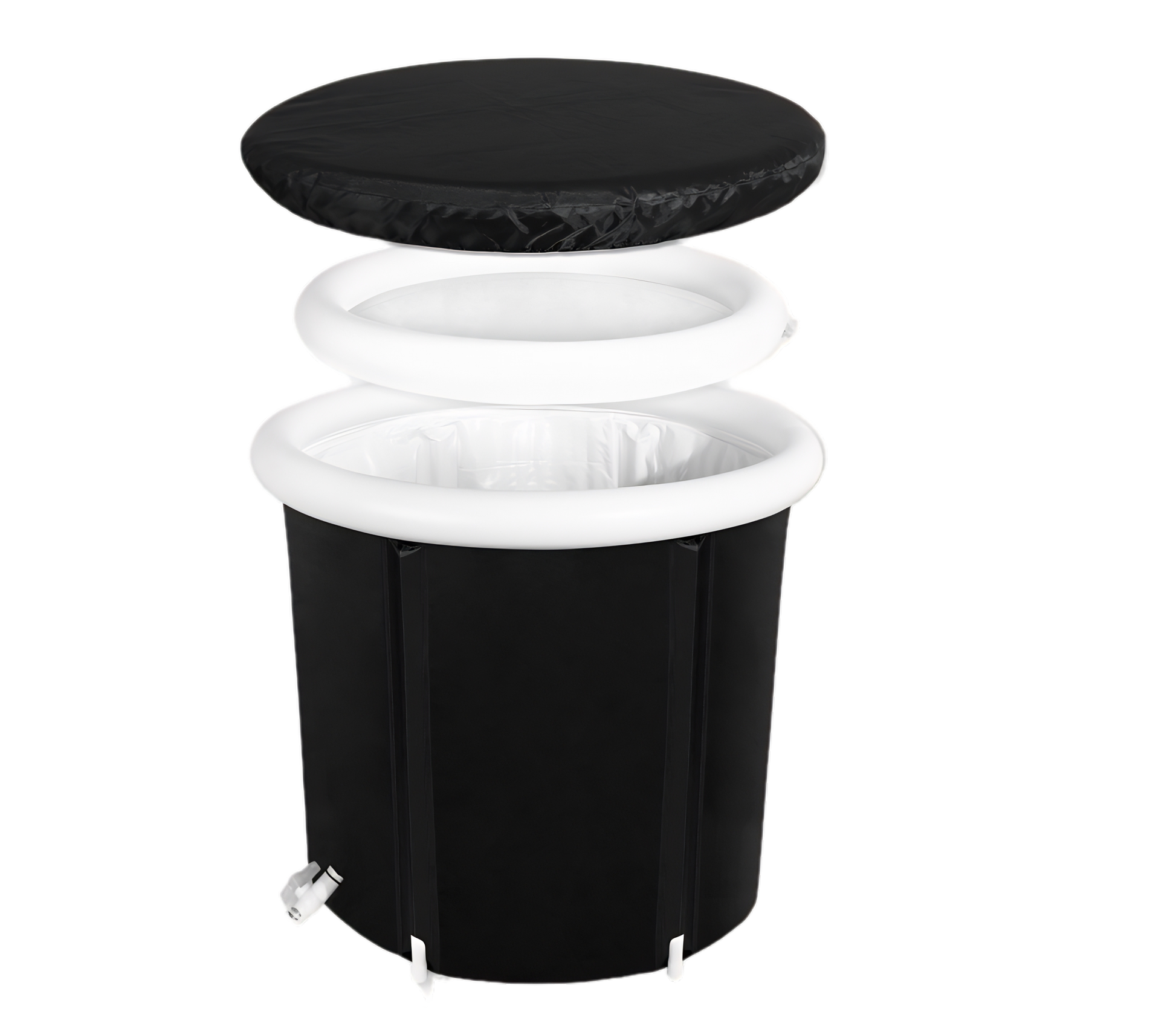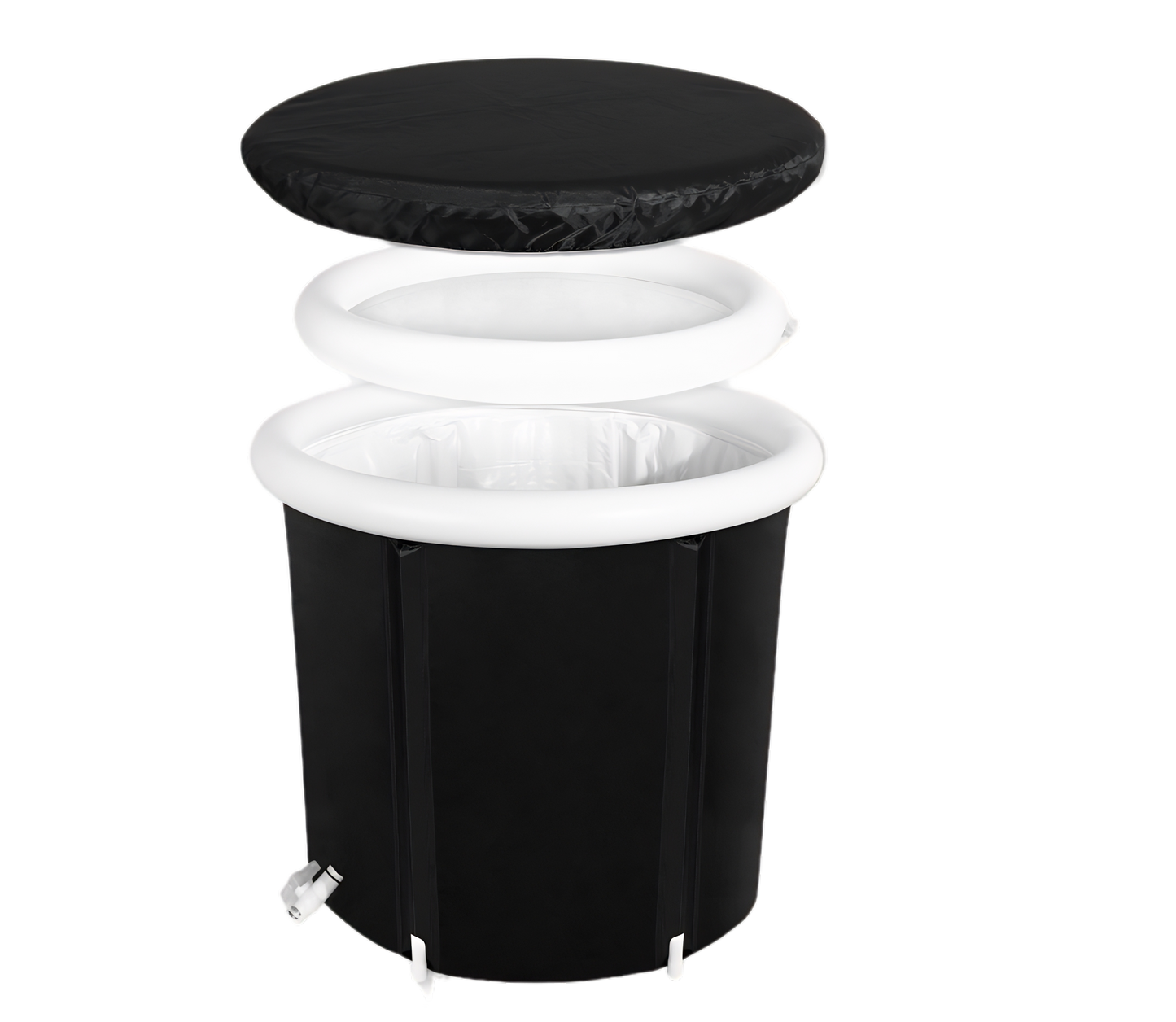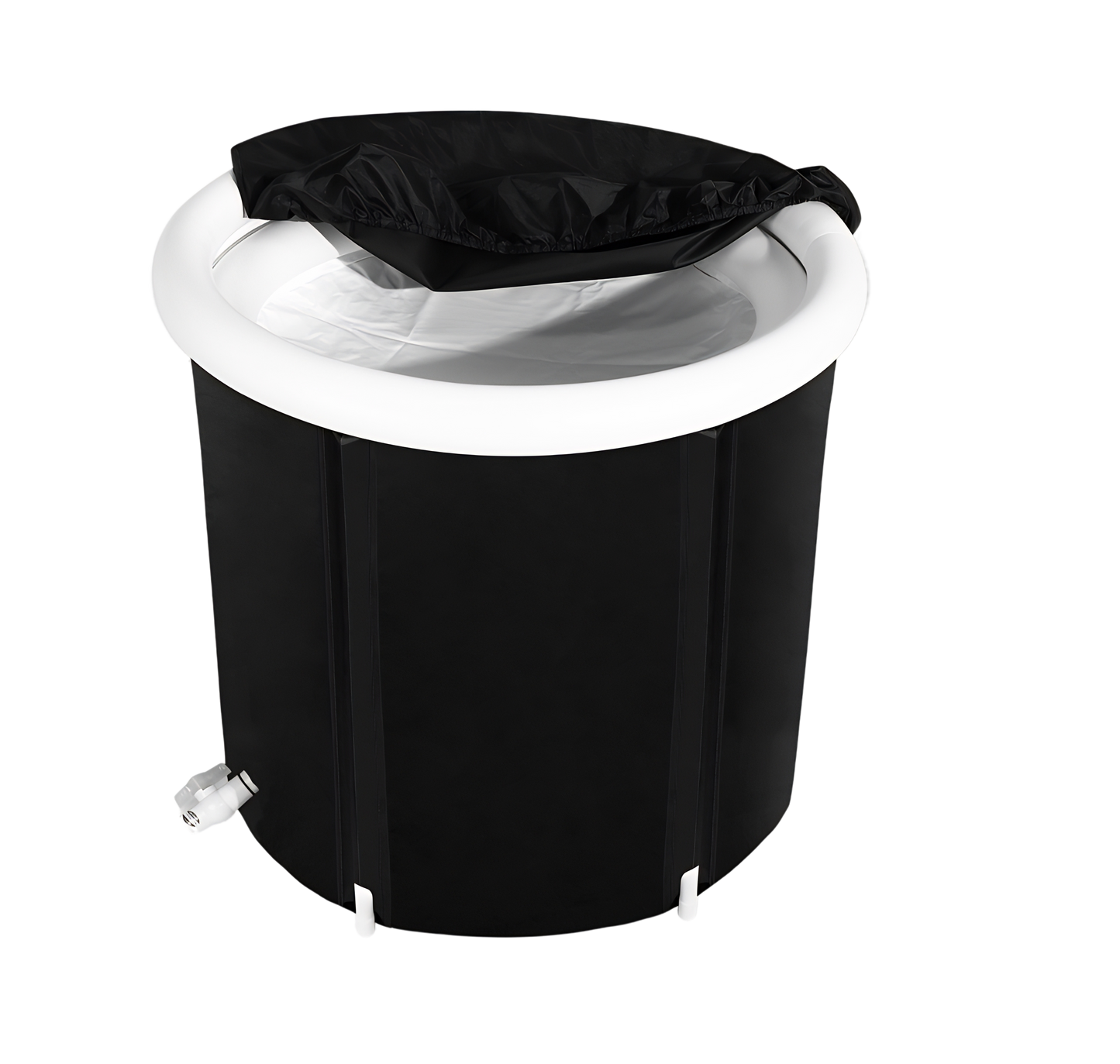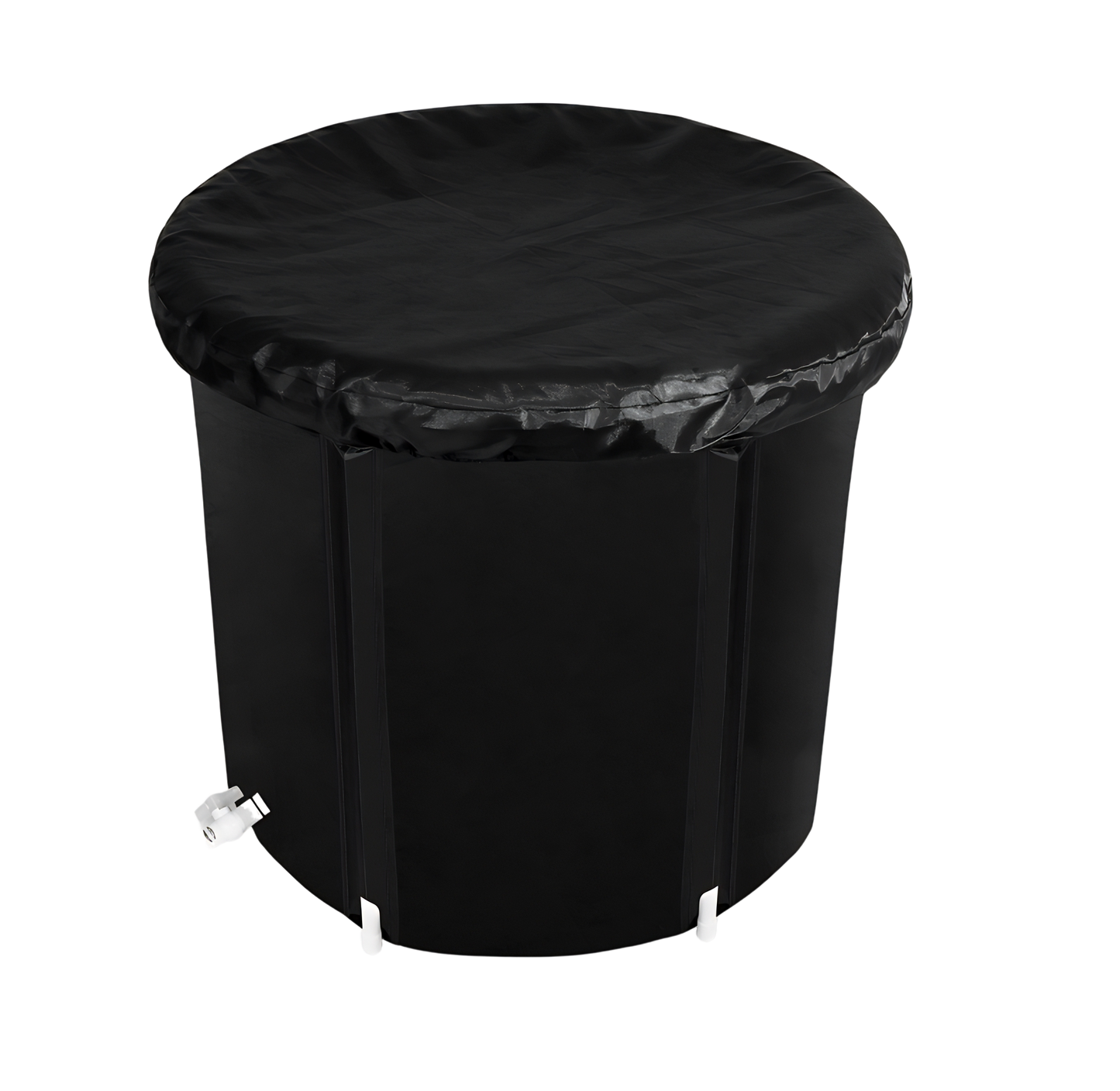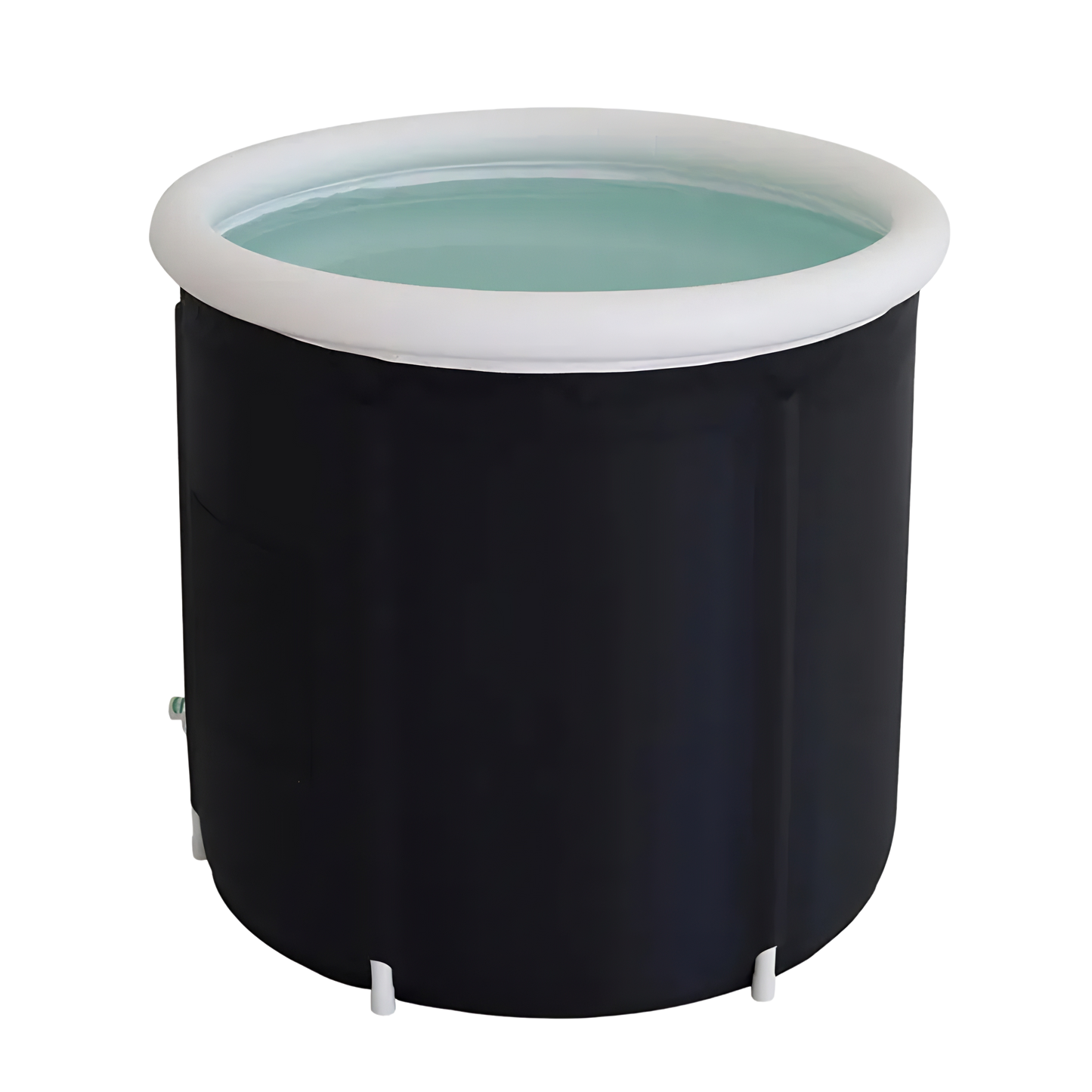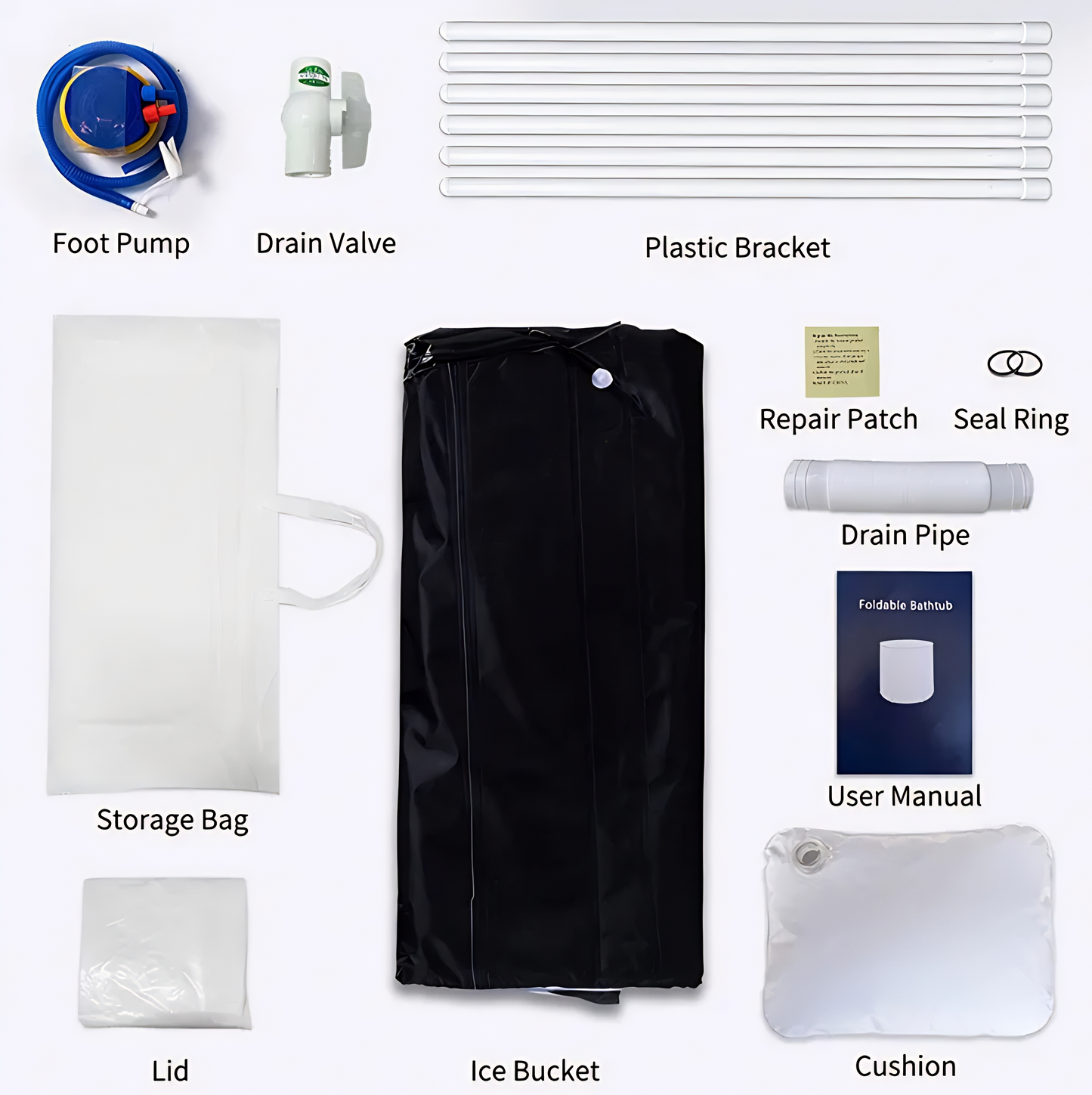Ice baths have a long history that dates back to ancient Greek and Roman medicine. This form of therapy involves immersing the body in cold water, typically between 10 to 15°C, for a duration of 2-10 minutes. While scientific evidence supporting ice baths is limited and mixed, anecdotal evidence and practical applications by athletes continue to promote this form of therapy.
Potential benefits of ice baths include reduced muscle soreness, improved circulation, and boosted mood. However, there are some potential risks associated with ice baths, such as hypothermia and complications for individuals with certain health conditions. It is important to consult a healthcare professional before trying ice baths to ensure safety.
Key Takeaways:
- Ice baths have a long history rooted in ancient Greek and Roman medicine.
- Anecdotal evidence and practical applications by athletes support the use of ice baths for post-workout recovery.
- Potential benefits of ice baths include reduced muscle soreness, improved circulation, and boosted mood.
- There are potential risks associated with ice baths, such as hypothermia and complications for individuals with certain health conditions.
- Consulting a healthcare professional is important before incorporating ice baths into a recovery routine.
The Historical Use and Cultural Significance of Ice Baths

Ice baths, also known as cold water immersion, have a long-standing history and cultural significance, particularly in ancient Greek and Roman medicine. These ancient civilizations recognized the therapeutic benefits of cold water immersion for various purposes, including the treatment of fever and relaxation. Today, ice baths continue to be popular among athletes, trainers, and therapists for their potential post-workout recovery and health benefits.
Ancient Greek and Roman medicine often utilized cold water immersion as a form of therapy. The Greeks believed that cold water could stimulate the body and promote healing, while the Romans used cold baths for relaxation and social activities. These practices highlight the cultural significance and importance placed on cold water immersion in these societies.
In modern times, ice baths have gained popularity as a recovery tool for athletes. While the scientific evidence supporting the benefits of ice baths is still limited, anecdotal evidence and practical applications by athletes suggest that they can aid in muscle recovery, reduce inflammation, improve circulation, and enhance mood. Despite the historical and cultural significance of ice baths, further research is needed to fully understand their physiological effects and long-term benefits.
| Historical Use | Cultural Significance | Modern Application |
|---|---|---|
| Ancient Greek and Roman medicine | Therapeutic treatment for fever and relaxation | Post-workout recovery for athletes |
| Ancient Greek and Roman beliefs | Social activities and cultural practices | Potential benefits of muscle recovery, inflammation reduction, improved circulation, and mood enhancement |
The Science Behind Ice Baths and Their Potential Benefits
When it comes to cold therapy for muscle recovery, ice baths have gained popularity among athletes and fitness enthusiasts. But what is the science behind this practice, and what potential benefits can it offer?
Cold water immersion, also known as ice baths, has been shown to have an effect on the body's physiological response to exercise. One of the key benefits is its potential to reduce inflammation. The cold temperature constricts blood vessels, which can help to minimize swelling and alleviate muscle soreness. Additionally, cold therapy has been found to decrease the production of pro-inflammatory chemicals in the body.
While the exact mechanisms of how ice baths aid in muscle recovery are still being studied, anecdotal evidence suggests that they can help to speed up the healing process. Cold therapy is believed to reduce metabolic activity in the muscles, which can decrease the production of waste products and promote faster repair.
The Potential Benefits of Ice Baths
- Reduced inflammation and muscle soreness
- Enhanced muscle recovery
- Promotion of waste product removal
- Potential mood enhancement
"Ice baths have become a staple in my recovery routine. They help me bounce back faster after intense training sessions and competitions." - Professional athlete
However, it's important to note that the scientific evidence supporting ice baths is still limited and mixed. Many studies have small sample sizes and varying methodologies, making it difficult to draw definitive conclusions. Additionally, the optimal water temperature, duration, and frequency of ice baths still need further investigation.
| Study | Participants | Findings |
|---|---|---|
| Machado et al. (2016) | 60 athletes | Improved muscle recovery time |
| Jones et al. (2019) | 15 recreational exercisers | Improved perceived recovery and reduced muscle soreness |
| Liu et al. (2020) | 10 elite cyclists | Decreased markers of muscle damage and inflammation |
In conclusion, while ice baths have shown potential benefits for muscle recovery and inflammation reduction, further research is needed to fully understand their physiological effects and establish optimal protocols. It is always recommended to consult with a healthcare professional before incorporating ice baths into your recovery routine, especially if you have any underlying health conditions.
Conclusion
In conclusion, ice baths have a long history and cultural significance, with roots in ancient Greek and Roman medicine. While the scientific evidence supporting ice baths is limited and mixed, anecdotal evidence and practical applications by athletes continue to promote their use for post-workout recovery and muscle soreness reduction.
It is important to approach ice baths with caution, as there are potential risks associated with this form of therapy. Consulting a healthcare professional before trying ice baths is recommended, especially for individuals with certain health conditions.
Further research is needed to fully understand the physiological response to ice baths and their potential long-term benefits.
FAQ
What is cold water therapy?
Cold water therapy, involves immersing the body in cold water, typically between 10 to 15°C, for a duration of 10-15 minutes.
What are the potential benefits of ice baths?
Potential benefits of ice baths include reduced muscle soreness, improved circulation, and boosted mood.
Are there any risks associated with ice baths?
Yes, there are potential risks associated with ice baths, such as hypothermia and complications for individuals with certain health conditions. It is important to consult a healthcare professional before trying ice baths to ensure safety.
Read More: Disadvantages of Ice Baths.
Where did ice baths originate?
Ice baths have a rich history and cultural significance, particularly in ancient Greek and Roman medicine. They were often utilized for therapeutic purposes, including the treatment of fever and relaxation.
Can ice baths aid in muscle recovery?
While the specific health benefits of ice baths are still being studied, they are believed to aid in muscle recovery, inflammation reduction, improved circulation, and mood enhancement.
What does the scientific research on ice baths suggest?
The scientific research on ice baths and their potential benefits is a topic of ongoing study. However, many studies have shown positive effects on post-workout muscle recovery, inflammation management, and mood enhancement.
Are there any precautions to take before trying ice baths?
It is important to approach ice baths with caution and consult a healthcare professional before incorporating them into a recovery routine, especially for individuals with certain health conditions.
Read More: Dos and Don'ts of Ice Baths.
What is the historical and cultural significance of ice baths?
Ice baths have a long history and cultural significance, with roots in ancient Greek and Roman medicine. They have gained popularity among athletes, trainers, and therapists for post-workout recovery, injury rehabilitation, and overall health benefits.
Is further research needed on ice baths?
Yes, further research is needed to fully understand the physiological response to ice baths and their potential long-term benefits.

